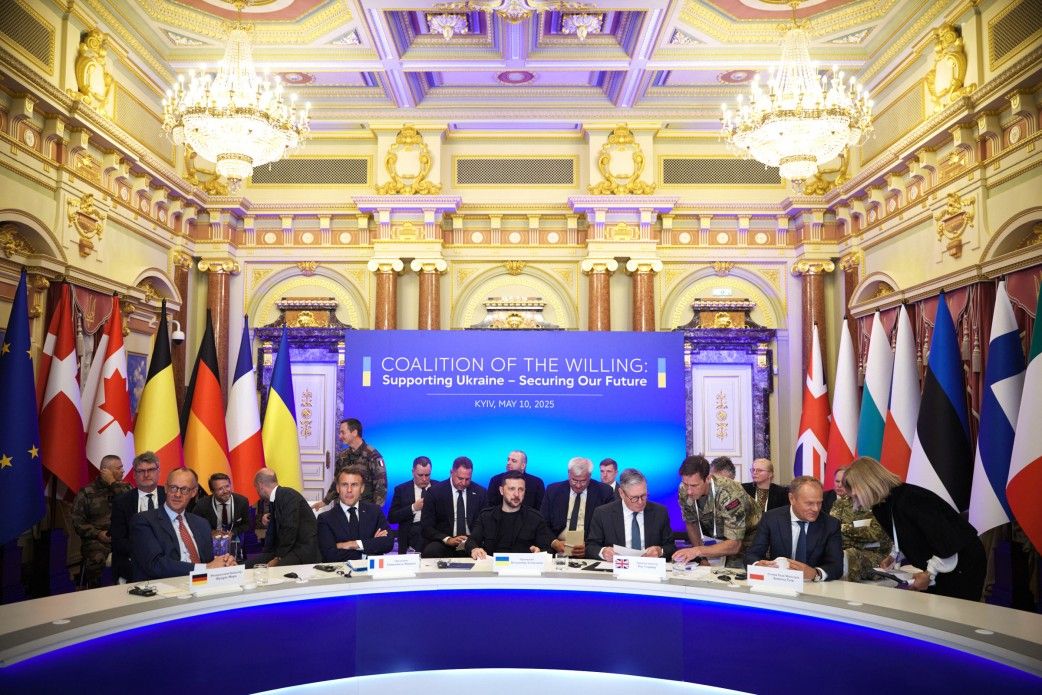President Volodymyr Zelensky and the leaders of the United Kingdom, France, Germany, and Poland agreed on May 10 to impose additional sanctions against Russia if the Kremlin does not accept their proposal for an unconditional 30-day ceasefire.
U.K. Prime Minister Keir Starmer, French President Emmanuel Macron, German Chancellor Friedrich Merz, and Polish Prime Minister Donald Tusk met with Zelensky in Kyiv on May 10. The leaders demanded Russia agree to an unconditional ceasefire of 30 days beginning May 12.
"(The nations) agreed that if Russia refuses a full and unconditional ceasefire, stronger sanctions should be applied to its banking and energy sectors, targeting fossil fuels, oil, and the shadow fleet," the five leaders said in a joint statement.
"They agreed to pass a strong 17th EU sanctions package and to coordinate it with sanctions imposed by the United Kingdom and Norway, as well as by the United States."
The statement also promises continued cooperation on the "effective use of frozen Russian assets" and further support for Ukraine's military and defense industry.
The European proposal for the 30-day ceasefire is backed by the United States, which first called for a complete month-long truce between Russia and Ukraine in March. Kyiv at the time agreed to the plan, but Russia refused to accept an unconditional ceasefire and insisted Ukraine first give up all foreign military aid.
"(A)n unconditional ceasefire by definition cannot be subject to any conditions," the joint statement on May 10 said.
"If Russia calls for such conditions, this can only be considered as an effort to prolong the war and undermine diplomacy."
Shortly after Ukraine and its European allies demanded Russia accept the ceasefire agreement, Russian President Vladimir Putin delivered a late-night address marking the end of Moscow's short-lived Victory Day truce.
Putin did not agree to the 30-day ceasefire and instead invited Ukraine to engage in direct talks with Russia in Istanbul beginning May 15. He also expressed annoyance at "ultimatums" from European states.
Kurt Volker, a former U.S. special representative for Ukraine, said on May 9 that he believes Putin is not interested in a peace deal, but may agree to a ceasefire later in the fall if Ukraine's allies succeed in imposing tougher sanctions on Russian gas, oil, and financial transactions.
U.S. President Donald Trump on May 8 said the U.S. would join partners in imposing "further sanctions" if Russia does not agree to an unconditional ceasefire.












